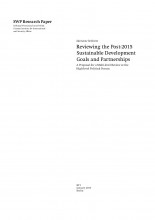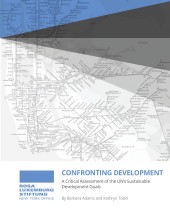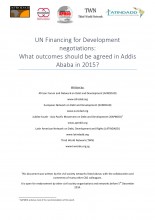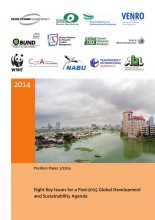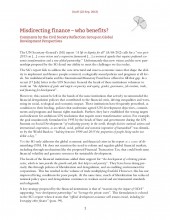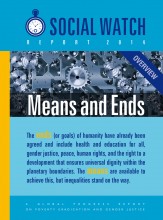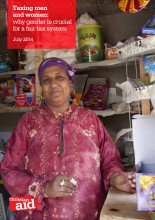Sustainable Development & Human Rights - Archive
Economic valuation of nature
Of the people and for the people?
What outcomes should be agreed in Addis Ababa in 2015?
Comments by the Civil Society Reflection Group on Global Development Perspectives
The search for accountability in development agendas
A guide to environmental-social budgeting
"Means and Ends"
Prologue
Monitoring is only meaningful if the powerful are held to account
Some 4,000 years ago, King Hammurabi had the laws of his domain between the Tigris and Euphrates carved in stone and placed in front of his palace. The laws were written in the plain language of the people, not in the arcane idiom of the priests, so that everybody could understand them. They were not engraved on clay, so they could not be changed at will, and they [...]
By Ranja Sengupta and Bhumika Muchhala*
Means of Implementation remains the most fiercely contested issue in the negotiations of the Open Working Group on Sustainable Development Goals at the United Nations headquarters in New York.
With the release of the Co-Chairs’ revised version of the Sustainable Development Goals (SDGs) ‘Zero Draft’ on 30 June, the intergovernmental negotiations during the final session of the Open Working Group (OWG) in mid-July becomes even more critical. The OWG Co-Chairs are Ambassadors Macharia Kamau [...]

